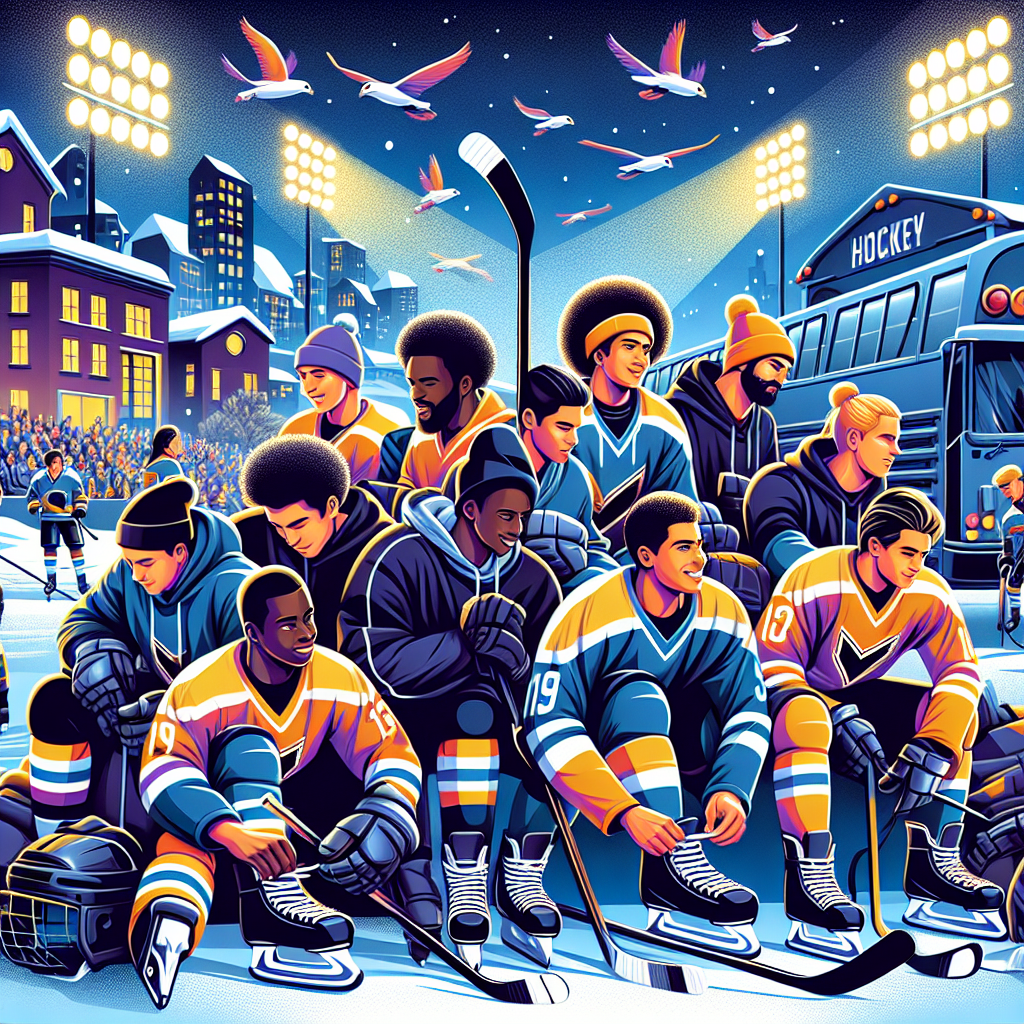How to Build Hockey Team Culture and Camaraderie During Long Travel Hockey Seasons
The excitement of a long travel hockey season is palpable, as players, coaches, and families invest their time and energy into the journey ahead. However, the rigors of constant travel can take their toll on team dynamics. Fostering a strong hockey team culture is critical for ensuring that players gel on and off the ice, helping to create a cohesive unit that excels in competition. In this blog post, we’ll share actionable strategies to build camaraderie and culture throughout the demanding hockey season.
1. Set Clear Team Goals
Every successful organization has clear and measurable goals. For a hockey team, this means establishing both short-term objectives for individual tournaments and a long-term vision for the season. Engaging the entire team in this goal-setting process fosters ownership and accountability, which are vital components of a strong hockey team culture.
- Team Meetings: Hold regular meetings where players can discuss goals, celebrate achievements, and reflect on areas for improvement.
- Visual Reminders: Create vision boards or shared documents that outline the team goals to keep everyone focused and motivated.
2. Encourage Open Communication
Effective communication is the cornerstone of any successful sports team. By encouraging open channels of communication, players feel more comfortable voicing their thoughts, concerns, and ideas. This transparency cultivates trust among teammates, deepening the overall hockey team culture.
- Establish Communication Norms: Determine preferred methods of communication—such as group chats, team apps, or social media groups—so everyone stays connected throughout the season.
- Weekly Check-Ins: Implement a system of weekly check-ins, either as a group or in smaller breakout sessions, to discuss challenges and successes.
3. Organize Team-Building Activities
Outside of practice and games, team-building activities can significantly enhance the bonds between players. This is especially important during long travel hockey seasons, where shared experiences help foster a positive team culture.
- Fun Outings: Schedule outings such as pizza nights, movie nights, or escape rooms to allow players to unwind and get to know each other.
- Physical Activities: Organize team hikes, bowling nights, or participation in obstacle courses that challenge physical abilities while requiring teamwork and collaboration.
4. Recognize Individual Contributions
Creating a sense of belonging within a hockey team often comes down to recognizing the individual contributions that each player makes to the group’s success. Regular acknowledgment can go a long way in building a team culture where everyone feels valued.
- Player of the Week: Develop a “Player of the Week” acknowledgment or similar award to celebrate effort, improvement, or teamwork.
- Personalized Notes: Encourage coaches to write personalized notes to players, highlighting their strengths and contributions.
5. Foster a Positive Atmosphere
A thriving hockey team culture is rooted in positivity. When players feel excited to come to practice and games, they’ll be more inclined to put in the effort needed to succeed. Creating a positive atmosphere can be achieved through simple yet effective practices:
- Positive Language: Promote the use of constructive feedback rather than criticism, encouraging players to uplift one another.
- Celebrate Wins and Learn from Losses: Emphasize the importance of celebrating both individual and team accomplishments while using losses as opportunities for growth.
6. Emphasize Team Values
Establishing core team values provides a framework for player behavior and decision-making throughout the season. These values can revolve around integrity, respect, hard work, and teamwork—key components of a robust hockey team culture.
- Team Charter: Collaboratively develop a team charter that outlines desired values, expected behaviors, and consequences for violating rules.
- Regular Reflections: Have regular discussions about how players embody these values during practices and games, reinforcing their importance.
7. Make Travel an Opportunity for Bonding
Long travel days can naturally be exhausting. However, they also create invaluable opportunities for team bonding. Transform travel into a fun-filled adventure full of shared experiences that deepen bonds.
- In-Transit Games: Organize games or trivia contests during long bus rides to keep spirits high and foster friendly competition.
- Shared Meals: Encourage players to dine together during travel, allowing for informal interactions that strengthen relationships.
Conclusion
Building a hockey team culture during long travel seasons is crucial for success on and off the ice. By implementing these strategies—setting clear goals, nurturing open communication, organizing team-building activities, and more—you will create an environment where players thrive, camaraderie flourishes, and a shared sense of purpose prevails.
In focusing on these essential elements, you’ll not only enhance team performance but also create memories that will last a lifetime. Whether your team is vying for championships or simply enjoying the journey together, a strong hockey team culture will guide the way.



